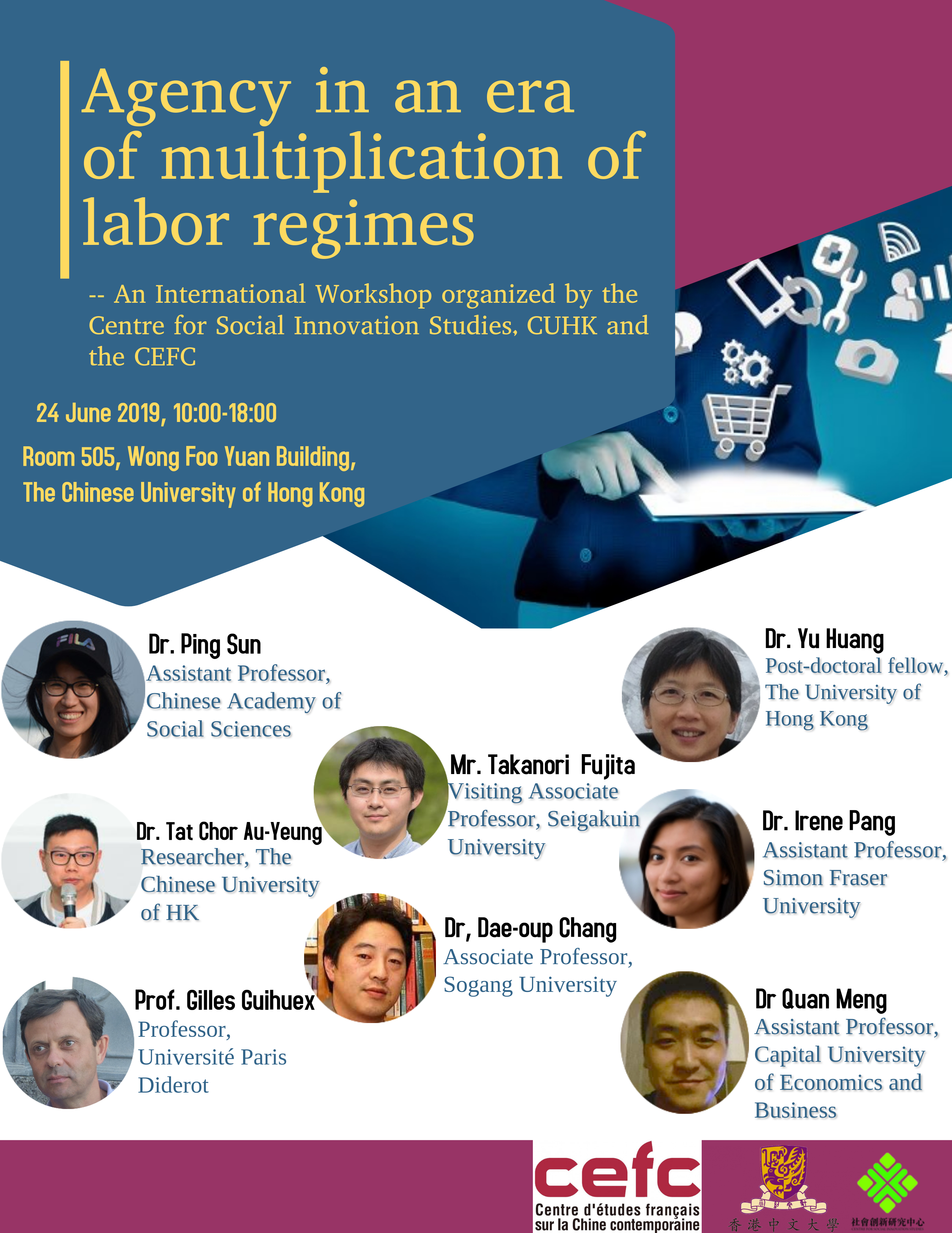Organiser:
The Centre for Social Innovation Studies ;
The Chinese University of Hong Kong &
The French Centre for Research on Contemporary China (CEFC)

Concept Note:
In Border as Method or the Multiplication of labour, Sandro Mezzadra and Brett Neilson highlighted how the transformations of global capitalism have implied shifting forms of articulation between economic processes and state power (Mezzadra and Neilson 2013 : 5-6). Notions such as precarity and the precariat have been proposed to summarise a general trend towards increasing casualisation and deregulation of employment relationships, as well as corresponding patterns of anomie and fragmentation of working-class politics, chiefly in Western Europe. In many countries of East Asia, while irregular patterns of employment have originally been quite widespread, one witnesses a “multiplication of labour regimes” (Mezzadra and Neilson 2013) and a global trend for workers to experience increasing degrees of flexibilisation, casualisation, and informalisation (Friedman and Lee 2010; Pun 2016; Kelleberg and Hewison 2018) producing “permanent impermanence” for an ever-wide spectre of workers (Lazar and Sanchez 2019). Overall, current processes of flexibilisation and casualisation of labour produce at once possibilities for a politics of solidarity and agency, but these processes also create the conditions for fragmentation and depolitization (Atzeni and Ness 2018). In the present era, what forms of agency (individual and collective) and of transformative politics (Lazar and Sanchez 2019) are being crafted and struggled for, from reducing the everyday effects of systems of exploitation and domination to their minimum to more visible and organized forms of labour politics? How do processes of precarisation and informalisation transform workers’ politics and labour relations ? We would like to delve into forms of workers’ creativity and agency that go beyond traditional forms of collective labour activism. From odd-job, domestic workers, frontline production and dispatch-workers, to delivery workers and high-tech programming workers, how do various categories of workers organize and in which measure are these politics of resistance reinventing patterns of agency and mobilisation? How are class, gender, ethnicity and place differences articulated in these politics of labour?
The programme of the workshop is available here
The workshop will be held in English.
Free admission, no reservation is required.

